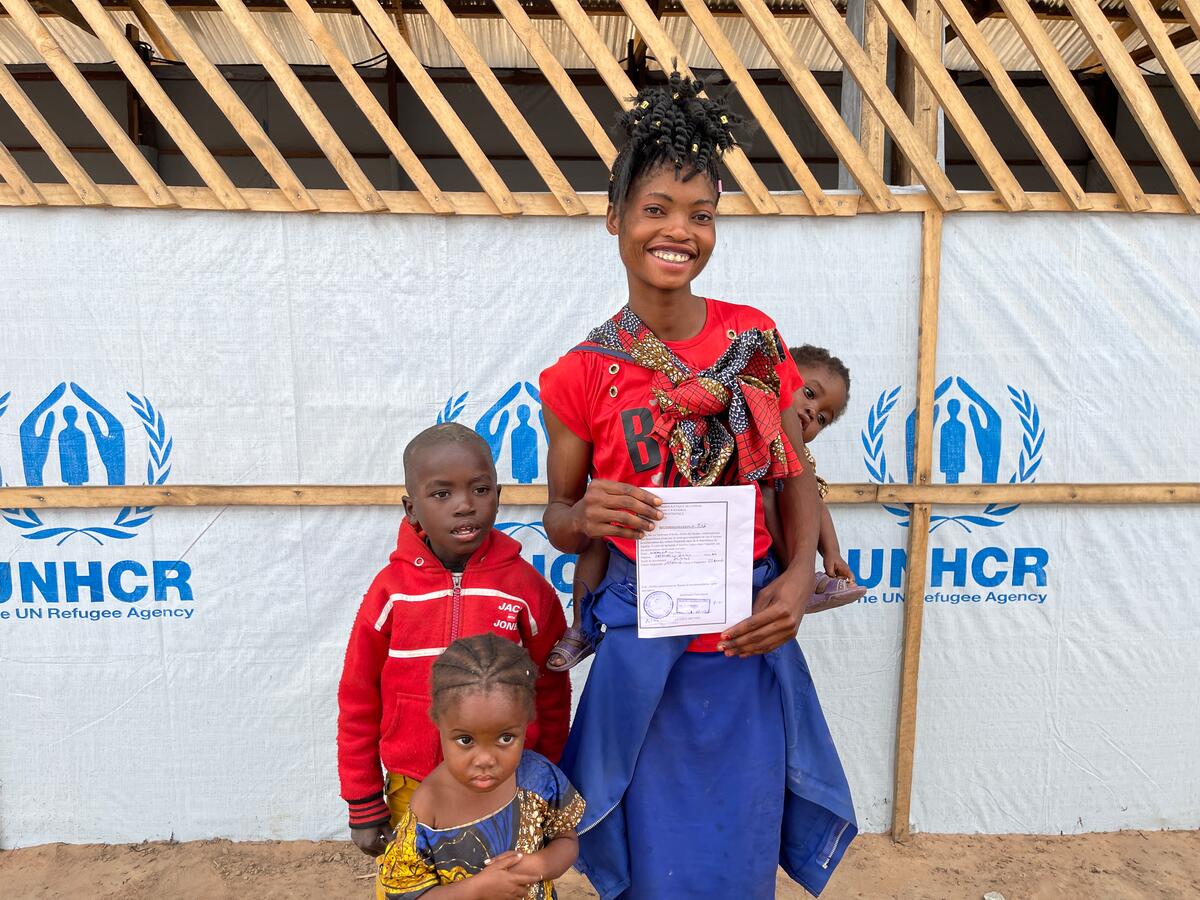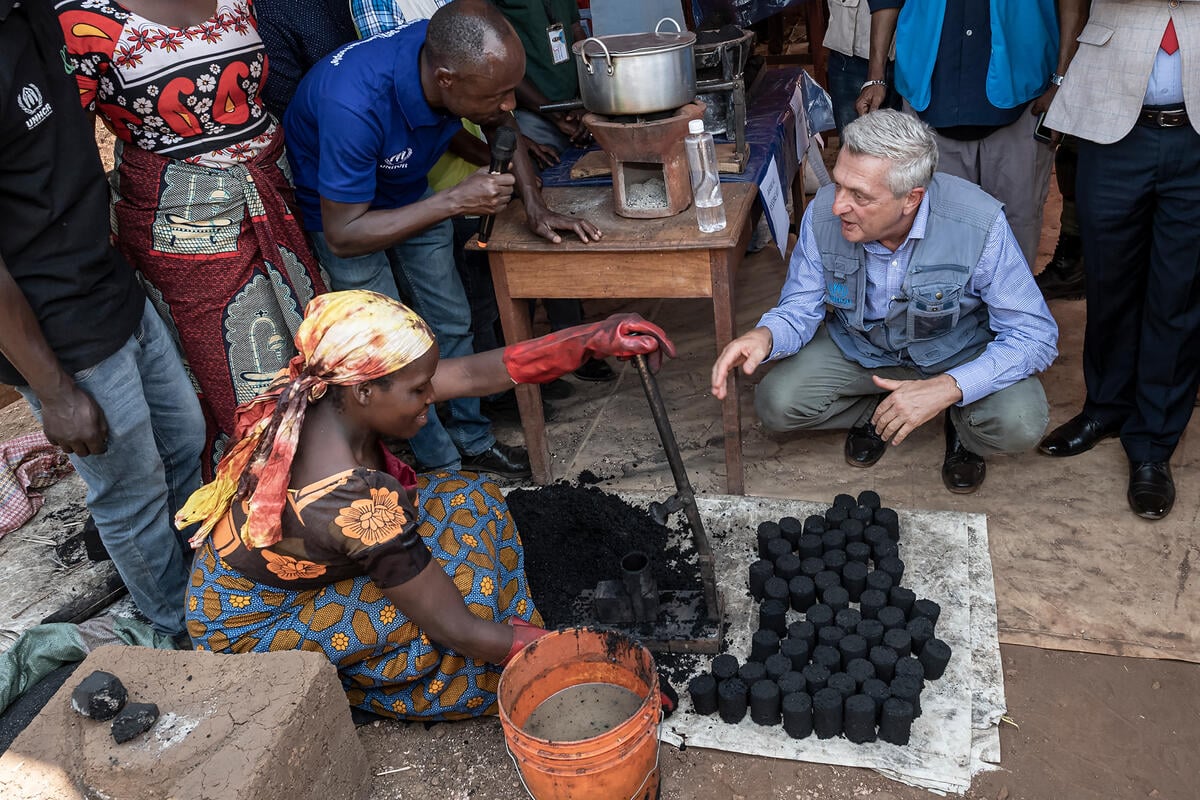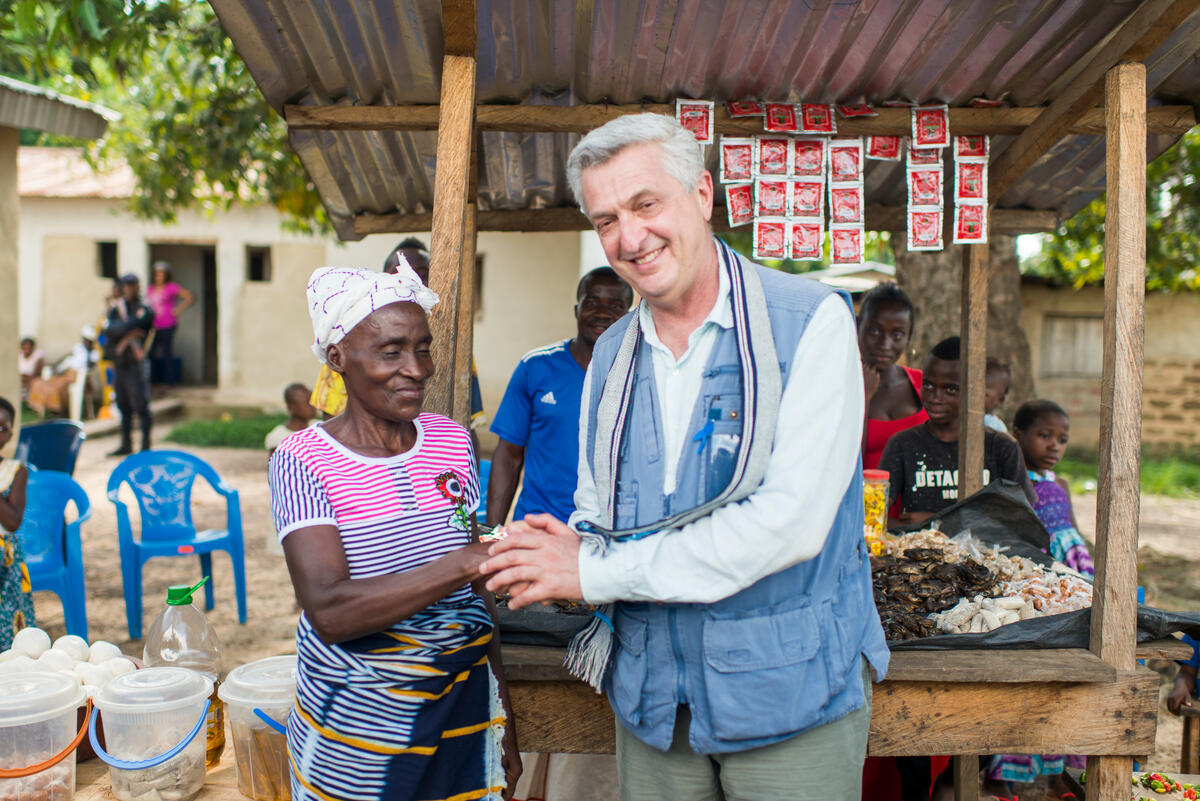UNHCR appeals for additional $115 million for voluntary return, reintegration of Somali refugees from Dadaab camp
UNHCR appeals for additional $115 million for voluntary return, reintegration of Somali refugees from Dadaab camp
Geneva, 26 July 2016 - UNHCR, the UN Refugee Agency today appealed to donors for an additional $115.4 million to fund the voluntary return and reintegration of Somali refugees from Dadaab refugee camp, Kenya. Funding is also required for relocation of refugees from Dadaab to Kakuma refugee camp, as well as related projects and infrastructure in Kenya and Somalia. UNHCR had previously appealed for $369.4 million for the ‘Somalia situation’. With this additional ask, and with some reprioritization of projects, UNHCR’s total revised 2016 requirements for this response in the affected countries (Djibouti, Ethiopia, Kenya and Somalia) is now $484.8 million.
Following the Government of Kenya’s announcement on 6 May of its decision to close Dadaab Camp, UNHCR presented a plan of action at the meeting of Tripartite Commission (Kenya, Somalia and UNHCR) which took place in Nairobi at the end of June and was attended by the High Commissioner, Filippo Grandi. The plan outlines a process intended to reduce the population of Dadaab – currently 343,043 (326,611 Somalis) – by 150,000 by the end of 2016. The $115 million requested will go towards a number of activities, including:
- Relocation of 16,000 non-Somali refugees from Dadaab to Kakuma
- Relocation of 15,000 Somali refugees currently in the resettlement process to Kakuma
- Relocation, reintegration of an estimated 42,000 Kenyans believed registered as refugees
- Verification of the Dadaab population and a comprehensive Return Intention Survey
- Support for an additional 50,000 voluntary Somali refugee returns from Dadaab to Somalia
“UNHCR is committed to ensuring that all returns to Somalia are voluntary and carried out in dignity, safety and with the protection of refugees paramount at all times,” said UNHCR’s Africa Bureau Director Valentin Tapsoba. “In order to do this we are requesting the international donor community to support this additional appeal so that returning Somalis can go back to their home country with the best possible opportunities to re-establish themselves and their families in peace and stability,” he said.
This additional funding is also required for the proposed increase in the return assistance package before departure from Kenya and upon return to Somalia. It is proposed to increase the return grant from $150 to $200 for Somalis returning by road. Those with specific needs would receive an additional $75. For the smaller number of returnees travelling by air, the return grant would be increased from $100 to $150, with an additional $30 for those with specific needs. Returnees will also be provided with a package of non-food items.
On the Somalia side, donor support is sought to fund an increase in the return assistance package there. It is proposed to remove the cap of $600 per family reinstallation grant and instead offer returnees $200 per person, regardless of family size, a move which should see more large families opt to return. In order to assist with initial reintegration, each returning family will be supported with a $200 per family monthly payment for six months in order to help cover basic needs. The possibility of providing health insurance for urban returnees will also be considered.
It is proposed to increase the areas of return and UNHCR presence, with three additional Way Stations to be added in Mandera/Belet Xawa, El Khalow/Ceel Wak and Anumel/Raskamboni as well as including Afmadow, Dinsoor and Belet Xawa to the existing nine areas of return. Access to basic social services is vital for successful reintegration and interventions will be focused on quick-impact (less than six months) community-based projects to create community assets in areas of return for returnees, IDPs and host community. Rehabilitation and/or extension of schools, health centres and other basic infrastructure will be implemented to sustain return, in close liaison with respective development programmes and plans. It is also proposed to establish an online job placement cross-border platform to connect job-seeking Somali returnees with prospective employers.
If the donor support is received, it is proposed to increase food assistance from three months support to six, possibly even further. An education assistance grant of $25 per child per month for nine calendar months is also proposed. Shelter and non-food item support will be augmented with the possibility of monetization of the existing NFI package and UNHCR intends to support 22,500 households to construct localized permanent shelters with $1,000 per family. Localised solutions for urban returnees through rent payment will also be considered.
It is anticipated that the majority of the remaining refugee population, approximately 170,000 people, would return to Somalia during the course of 2017 and possibly in early 2018. To date, over 19,000 Somalis have returned to Somalia from Dadaab since December 2014.
Somalia Situation Supplementary Appeal: http://reporting.unhcr.org/node/15260
Communique of the Tripartite Commission: http://www.unhcr.org/news/press/2016/6/576ea0474/joint-communique-ministerial-tripartite-commission-voluntary-repatriation.html
UNHCR Somali Refugees Data Portal: http://data.unhcr.org/horn-of-africa/regional.php
Media contacts:
In Nairobi, Duke Mwancha, mwancha@unhcr.org, +254 722 207 863
For Somalia (Nairobi based), Julien Navier, navier@unhcr.org, +254 732 400 044
In Geneva, Nora Sturm, sturmn@unhcr.org, +41 79 200 76 18









